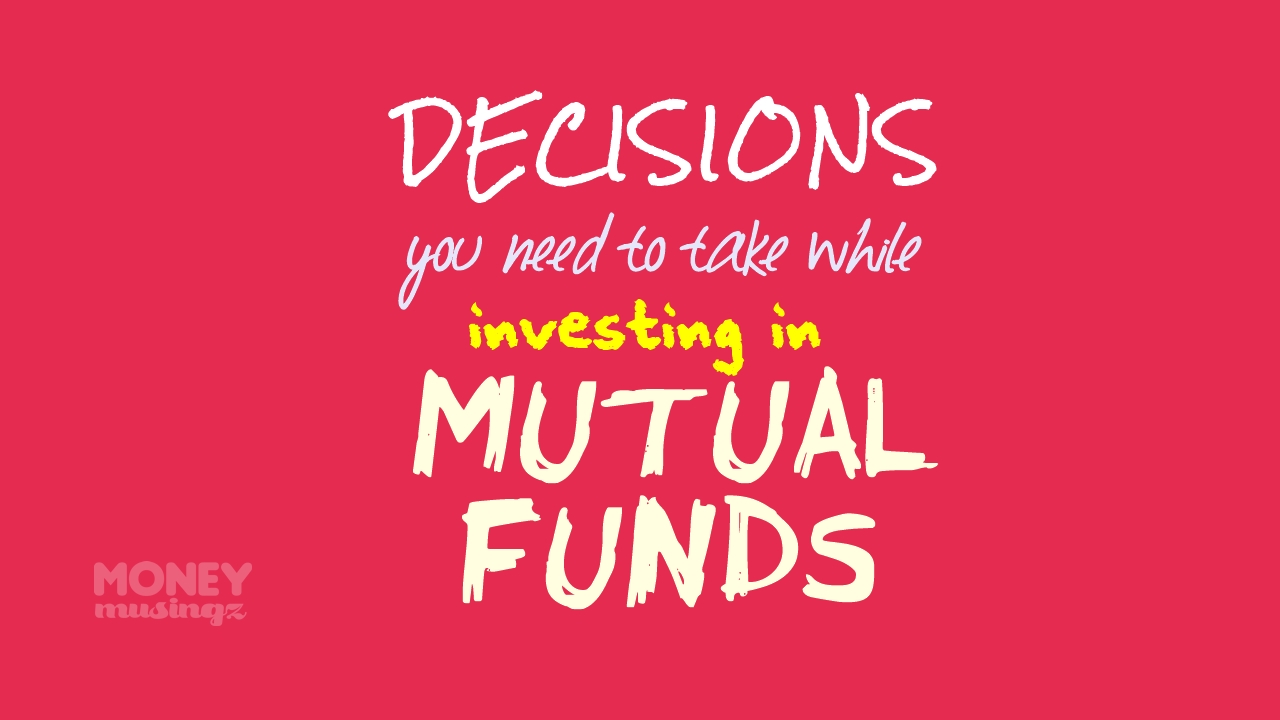Decisions that you need to take while investing in Mutual Funds:
1. Direct vs Regular Plans: Firstly, investors have to choose between direct plans and regular plans. Under direct plans, investors do not pay commissions. But they are all alone in execution. From scheme selection to remitting the money to handling redemptions—they have to do everything on their own. Regular plans are sold through distributors who take care of the entire execution process. For this, MFs take the money from your account and pay them commissions, which gets deducted from the value of your holding.
2. Channels: You can buy direct plans through multiple channels. One, invest through the websites of AMCs; two, through MF Utility, a common platform set up by AMFI; three, one can also invest through RTAs like CAMS and Karvy. For regular plans, investors can go through one of the many offline and online distributors, apps/new age fintech sites or even stockbrokers, which puts their transactions through stock exchange platforms.
3. Advisor or Distributor or Both? The regulator, SEBI, has separated advice from execution, for four years now. This means that now there are registered investment advisors, or RIAs, who only research and recommend schemes but do not handle execution (that is, transactions), while there are others that help with the execution too—for a small fee. You need to figure out whether you need only advice or execution or both.
4. Apps/ Fintech Sites: Dozens of new online sites, under the labels of ‘fintech’ and ‘robo advisory’, have mushroomed that allow for easy investments and also tracking. Do they offer a choice of all the schemes? Are their ‘algorithms’ for scheme selection any good?
5. Distributors as Advisors! Finally, to complicate matters further for investors, SEBI allows distributors to advise on the funds they are selling, plus have distribution and advisory arms under the same brand name, though only corporate entities are allowed advisory with distribution model, not individuals. It is not easy for even us to know whether distributors are really masquerading as advisors.
6. Demat or Non-demat? An investor has the choice of investing through a platform that puts his mutual fund holdings in a demat account. This has the advantage of displaying all his demat holdings, including stocks, bonds and MFs, at one place.
7. Free or Fee? Everyone in the MF industry believes that investors are reluctant to pay fees for the services.


